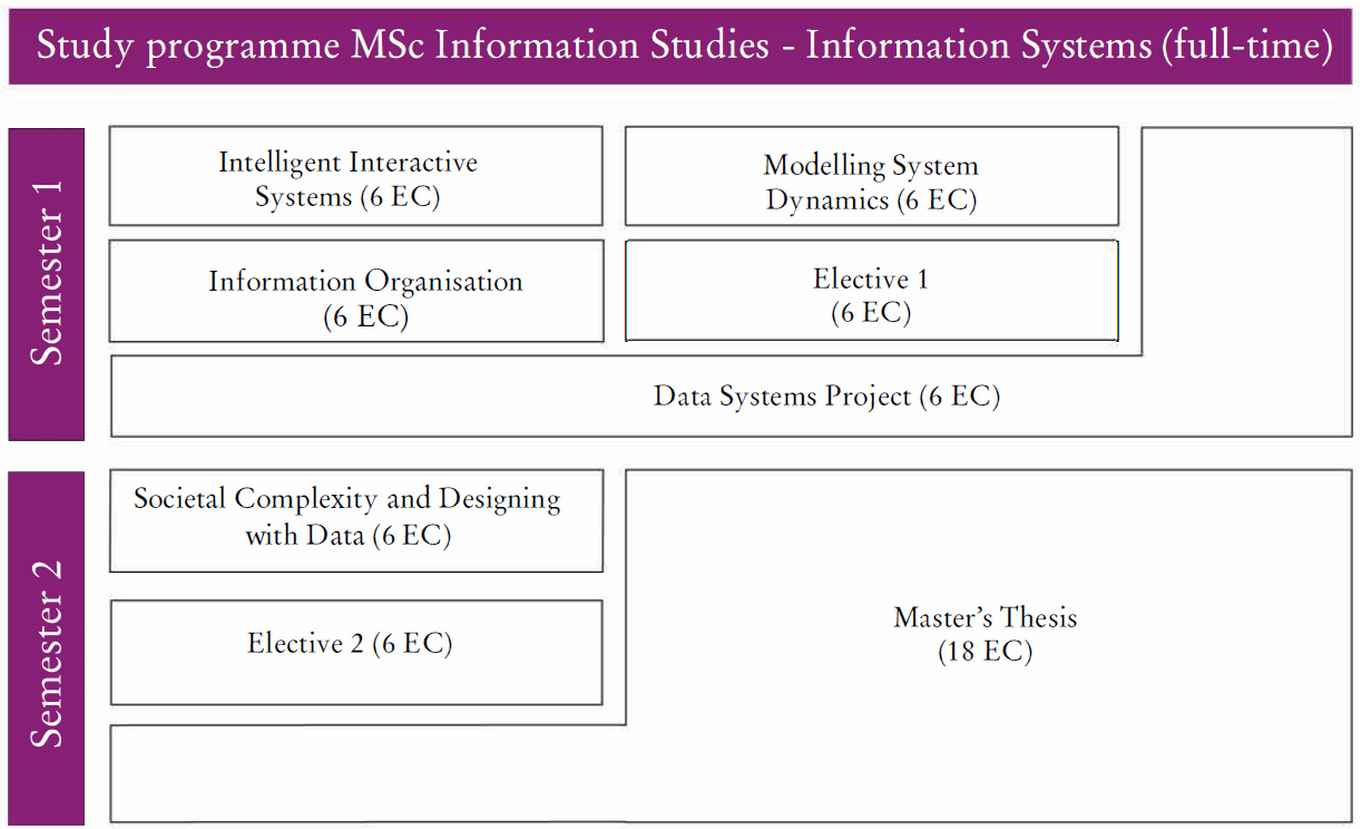Study programme
Programme outline
The programme examines subjects such as:
- media & sensor technology
- intelligent interactive systems
- system dynamics
- information retrieval
- semantic web technology
- privacy and ethical aspects in complex systems
- innovation & design thinking
- cognitive tools
The University of Amsterdam is ideally suited to research these subjects. The city of Amsterdam is located in one of the most important European centres in the area of ICT and new media and it offers an environment of unrivalled innovation.
Full-time study
During weekdays you must be available at varying times between 09:00 and 21:00, and you are expected to spend at least 40 hours a week on your studies of which 16 hours of courses at the faculty and 24 hours of self-study.

Part-time study
The programme is also available on a part-time basis, in two years instead of one. You follow half of the curriculum in the first year and the other half in the next. It is important to be aware that there is no separate part-time schedule, you will follow the courses at the same time as the full-time students which means that they can be at any time of the day (9:00 – 21:00), be spread across the entire workweek and they will be on campus. Prepare for this with your family or an employer to make sure this can be accommodated for. If you follow the programme parttime it will approximately cost you 20 hours a week with the exception of period 3 in the first year. In those 4 weeks a fulltime presence is required to finalise the group project you have been working on. The exact schedule becomes available a month or two before the start of the semester but after the application deadline.
Due to visa requirements, students with a nationality outside the EU, EEA or Switzerland cannot join the part-time programme.

Adapted study programme
If you already completed another Master's programme, such as Computer Science, it is not possible to follow an adapted, shorter version of the programme. You might be exempted of some of the courses though. This is based on the curriculum of your previous Master’s programme.
Taking Information Systems courses as an elective
It is possible to take Information Systems courses as an elective if you are a student in another Master's programme. However Information Studies students have priority, and the entry requirements apply for separate courses as well.
Accreditation and title
This Master's programme has been accredited by the Accreditation Organisation of the Netherlands and Flanders (NVAO). Upon successful completion of the programme (a total of 60 EC), students will receive a legally recognised Master's degree in Information Studies and the title of Master of Science (MSc).
Bring your own device
All students enrolled in Information Studies are requested to bring their own laptop, due to the nature of the programme. More information on specific system requirements can be found here.